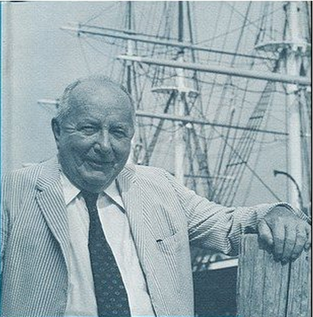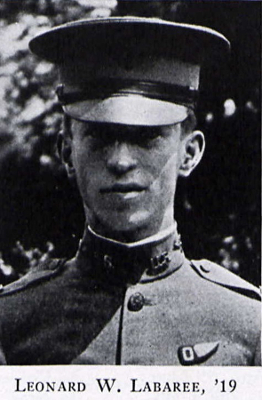Related Research Articles

Mystic is a village and census-designated place (CDP) in Groton and Stonington, Connecticut.

Mystic Seaport Museum or Mystic Seaport: The Museum of America and the Sea in Mystic, Connecticut is the largest maritime museum in the United States. It is notable for its collection of sailing ships and boats and for the re-creation of the crafts and fabric of an entire 19th-century seaport village. It consists of more than 60 historic buildings, most of them rare commercial structures moved to the 19-acre (0.077 km2) site and meticulously restored.

John Brewster Hattendorf, FRHistS, FSNR, is an American naval historian. He is the author, co-author, editor, or co-editor of more than fifty books, mainly on British and American maritime history and naval warfare. In 2005, the U.S. Naval Institute Proceedings described him as "one of the most widely known and well-respected naval historians in the world." In reference to his work on the history of naval strategy, an academic in Britain termed him the "doyen of US naval educators." A Dutch scholar went further to say that Hattendorf "may rightly be called one of the most influential maritime historians in the world." From 1984 to 2016, he was the Ernest J. King Professor of Maritime History at the United States Naval War College in Newport, Rhode Island. He has called maritime history "a subject that touches on both the greatest moments of the human spirit as well as on the worst, including war." In 2011, the Naval War College announced the establishment of the Hattendorf Prize for Distinguished Original Research in Maritime History, named for him. The 2014 Oxford Naval Conference - "Strategy and the Sea" - celebrated his distinguished career on April 10–12, 2014. The proceedings of the conference were published as a festschrift. In March 2016, Hattendorf received the higher doctorate of Doctor of Letters (D.Litt.) from the University of Oxford. Among the few Americans to have received such designation, Hattendorf remained actively engaged on the Naval War College campus after his formal retirement in 2016.

Patriots, also known as Revolutionaries, Continentals, Rebels, or Whigs, were colonists in the Thirteen Colonies who opposed the Kingdom of Great Britain's control and governance during the colonial era, and supported and helped launch the American Revolution that ultimately established American independence. Patriot politicians led colonial opposition to British policies regarding the American colonies, eventually building support for the adoption of the Declaration of Independence, which was adopted unanimously by the Second Continental Congress on July 4, 1776. After the American Revolutionary War began the year before, in 1775, many Patriots assimilated into the Continental Army, which was commanded by George Washington and which secured victory against the British, leading the British to acknowledge the sovereign independence of the colonies, reflected in the Treaty of Paris, which led to the establishment of the United States in 1783.
The Royal Society of Arts Benjamin Franklin Medal was instituted in 1956 to commemorate the 250th anniversary of Benjamin Franklin's birth and the 200th anniversary of his membership to the Royal Society of Arts.
Wilbur Cortez Abbott was an American historian and educator, born at Kokomo, Indiana. He graduated from Wabash College in 1892. Afterward, he studied at Cornell University (1892–95) and at Oxford in 1897 where he received the degree of B.Litt.

Robert Greenhalgh Albion was Harvard's first professor of Oceanic History and inspired two generations of maritime historians in the United States.
William Morgan Fowler Jr. is a professor of history at Northeastern University, Boston and an author. He served as Director of the Massachusetts Historical Society from 1998 through 2005.

Benjamin Woods Labaree was a leading historian of American colonial history and American maritime history. He was born in New Haven, Connecticut.

Leonard W. Labaree was a distinguished documentary editor, a professor of history at Yale University for more than forty years, a historian of Colonial America, and the founding editor of the multivolume publication of The Papers of Benjamin Franklin.
The Gardiner Chair of Oceanic History and Affairs was established at Harvard University in 1948.
John Horace Parry CMG, MBE was a distinguished maritime historian, who served as Gardiner Professor of Oceanic History and Affairs at Harvard University.
John Haskell Kemble (1912–1990) was a professor of history at Pomona College and an influential American maritime historian.
William Avery Baker was a distinguished naval architect of replica historic ships and a maritime historian, who was curator of the Francis Russell Hart Nautical Museum at Massachusetts Institute of Technology 1963–1981.
Briton Cooper Busch was a specialist in nineteenth century British diplomatic history, military history, and American maritime history at Colgate University.
Karl Jack Bauer, was one of the founders of the North American Society for Oceanic History (NASOH) and a well-known naval historian. NASOH's K. Jack Bauer Award is named in his memory.
Lisa Norling is a U.S. historian noted for her pioneering work on gender and the sea. As such she is part of a new move in maritime historiography to examine gender, race and class in relation to seafaring labor, passengers and people in port cities.
References
- 1 2 "About the Munson Institute - Munson Institute".
- 1 2 Labaree, Benjamin W., 'The Frank C. Munson Institute of American Maritime Studies,' American Neptune, vol. 45 (1945), pp. 441-445.